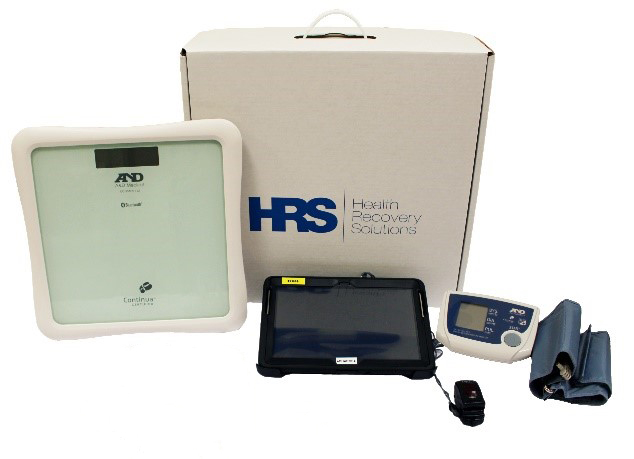Why Patients Live Longer with Hospice Care

Even though millions of people receive hospice care every year, there are still several misconceptions about this type of end of life care for patients. Studies have shown that hospice patients tend to live longer compared to patients with similar health conditions that don’t receive hospice. The focus shifts from receiving curative treatments to embracing each day with loved ones, being as comfortable as possible, and easing through a natural stage of life. When patients choose hospice, they make a choice to improve the quality of their lives. Keep reading to find out why patients live longer with hospice care.
Hospice Care is At Home
Typically, hospice care is provided in a patient’s current living setting. This can be their home, a loved one’s home, an assisted living facility, or a skilled nursing facility. When patients are surrounded by people and things they love, they feel much more comfortable, safe, and happy. Additionally, patients and their families can dictate their own schedules and rules, which is not possible in a very structured hospital environment. Indeed, hospitals must enforce rules about visiting hours, what can be brought, and how long visitors can stay. By receiving care at home, patients will be more relaxed knowing others can come over when they are feeling up to having company.
Comfort is a Top Priority
A top priority of hospice care is ensuring patients are as comfortable as possible. The hospice team will help patients better manage their pain and symptoms related to their serious illness. In turn, patients will find it easier to connect with their loved ones and embrace each day with the time they have left.
Shift in Focus
When patients choose hospice, this means they are ready to stop receiving curative treatments for their serious illness or chronic condition. Since hospice is a choice, they can always stop this care and choose to start treatment again. The decision is always up to patients and their families. By shifting the focus from treatments to living the most comfortable life possible, patients will feel relief and a newfound energy. Indeed, patients will no longer have to worry about frequent trips to a clinic for treatment, as well as the aggressive medications with their unpleasant side effects.
The patient’s hospice team will focus on helping them live as comfortably and for as long as possible. This essential team will also help create meaningful experiences for patients and families, which will help meet their emotional and spiritual needs. Patients will be able to share memories with those that matter most.
Connect with Loved Ones
For patients, having the love and support of their loved ones can be a powerful force for improving the quality of their life. Aside from patients, the hospice team provides support to patient’s caregivers in the home. When families and friends visit their loved one, they will find comfort in the care and support the patient is receiving.
Hospice care offers several benefits for patients and their families. While every person is different, many hospice patients tend to live longer than those that do not receive this care. It’s not surprising that patients do better at home, where they are comfortable and surrounded by the people, pets, and things they love dearly. This can be a motivation for them to embrace each day and do what matters most to them, whatever that may be. If you and your loved one are considering hospice care, contact Liberty HomeCare and Hospice Services. Our expert hospice care is offered across NC, SC, and VA.
Common Myths About Hospice Care

In 2018, around 1.55 million Medicare beneficiaries received hospice care, a number that will continue to rise. Despite the fact that millions of people receive hospice, this is still a commonly misunderstood term. When people hear the word hospice, they may feel worried about their loved ones. It’s important to know that hospice provides quality end-of-life care that focuses on embracing each day, sharing time with loved ones, and easing through a natural stage of life as comfortably as possible. Let’s address some common myths associated with hospice and present the facts you need to know for you and your loved one.
Common Myths About Hospice
Myth #1: Choosing Hospice Means Giving Up
This is far from true. Hospice is all about helping patients ease through a natural stage of life and make each day matter. It’s about living life to the fullest with the time they have left. Various research over the years indicates that patients who receive hospice tend to live longer and have a better quality of life compared to patients that choose aggressive medical treatments or no treatment at all. Indeed, hospice is a choice to live as comfortably as possible and enjoy each day with friends and family.
Myth #2: Hospice is Too Expensive
Hospice is fully covered by Medicare and Medicaid, which provides unlimited hospice care for as long as the patient has a life-limiting illness. Most private health insurance companies also cover this type of care with little to no out-of-pocket expenses. This covers visits, medications, and supplies and equipment needed for the patient’s hospice diagnosis.
Myth #3: Hospice Care is Only Offered At Hospitals
In general, most hospice care is offered wherever a patient calls home. By providing this essential care in the home, patients will feel more comfortable and relaxed compared to being in an unfamiliar setting like a hospital or hospice facility. Of course, hospice care is also offered at skilled nursing facilities, assisted living facilities, and hospitals.
Myth #4: Hospice Means You Lose Control
Once a patient qualifies and is admitted to hospice, they can choose to stop this care at any time. This gives the patient control over what they want regarding care and support. Examples of why a patient may stop hospice is because their condition has improved or they want to start receiving curative treatment instead. Patients can also choose to resume hospice care as long as they still have a life-limiting illness.
Myth #5: Hospice is Only For People with A Few Days or Weeks Left to Live
Hospice is for patients that have received a diagnosis from their doctor that they have six months or less left to live. Instead of seeing this as the end, patients and their families should view this as a special time to make each day matter and help the patient receive the best care possible. Hospice helps patients better manage their pain and symptoms related to their illness, as well as address their emotional and spiritual needs. This care can extend the patient’s projected life expectancy, which means more time spent with loved ones. Even when patients improve, they can still receive hospice for as long as they qualify.
Myth #6: Hospice Care Is Only For Cancer Patients
Hospice care is not just for patients with a cancer diagnosis. Indeed, any patient with an estimated life expectancy of six months or less can qualify for hospice. Some of the most common reasons people receive hospice include:
- Cancer
- Alzheimer's / Dementia
- Heart disease
- Lung disease
- Stroke
- ALS
There are several myths about hospice care. Since hospice care offers so many benefits for patients and their loved ones, it’s crucial to understand the facts from the fiction. Liberty HomeCare and Hospice Services is dedicated to providing compassionate care and support for a transition marked by dignity and meaning. Contact us today to learn more about our hospice care designed to help patients embrace each day, share time with loved ones, and experience life to the fullest without pain.
What You Need to Know About Five Wishes
 An advance directive is a written, legal document that details your preferences for medical care if you are unable to make the decisions yourself. An advance directive acts as a guide for your doctor, family members and caregivers so they know exactly what you want.
An advance directive is a written, legal document that details your preferences for medical care if you are unable to make the decisions yourself. An advance directive acts as a guide for your doctor, family members and caregivers so they know exactly what you want.
Liberty Hospice can help you with advance directive planning through the Five Wishes program. Fives Wishes is a living will that covers personal, spiritual, medical and legal wishes all in one document in clear, easy to understand terms. Five Wishes was created by Aging with Dignity, a non-profit organization that advocates for the needs of seniors and those who care for them.
In this blog, we answer some of the frequently asked questions about Five Wishes and advance directives.
Why should I fill out an advance directive?
If you become seriously ill, expressing your wishes in an advance directive like Five Wishes empowers your doctor, family members and caregivers to make the best decisions when the time comes and helps avoid disagreements about what to do. It can help everyone involved have peace of mind, knowing your wishes are being met. By planning ahead, you will receive the medical care you want and your caregivers will not have to make difficult decisions during moments of crisis or grief.
When should I fill out an advance directive?
The best time to fill out an advance directive like Five Wishes is now, before you face a health crisis. Life is unpredictable and it is always better to be prepared. If your desires change, you can always update your advance directive at any time. Five Wishes recommends reviewing your advance directive at least once a year or if you have any major changes in your health or your family support network.
Is Five Wishes a legal document?
Yes, Five Wishes is a legal document written with the help of the American Bar Association’s Commission on Law and Aging. Five Wishes meets the legal requirements of 46 states, including North Carolina, South Carolina and Virginia. Five Wishes is used widely in all 50 states and a federal law requires medical care providers honor patient wishes as expressed.
What is a health care agent and why do I need one?
The first wish you fill out in Five Wishes is designating a health care agent who will speak for you if you can’t speak for yourself. Anyone 18 or older can act as your health care agent in all states except Colorado, where the agent needs to be 21 or older. Five Wishes recommends you select someone who is trustworthy and reliable. This person does not have to be a family member. Five Wishes also recommends discussing your wishes with your health care agent so there are no misunderstandings later should they need to advocate on your behalf.
When does Five Wishes take effect?
Five Wishes only takes effect when you are no longer able to communicate. The person you have chosen to be your health care agent will use your Five Wishes document to help convey your specific wishes about your care. If you are still able to communicate, you can still make your own decisions about your care and will not need to use Five Wishes.
What should I do after completing Five Wishes?
After completing the Five Wishes printed booklet, Five Wishes suggests the following:
- Review the document, possibly with your family.
- Follow the directions for signing the document.
- Discuss the document with your healthcare agent and doctor and give each a copy.
- Make sure your doctor places your Five Wishes in your medical file.
- Discuss your Five Wishes with your family and friends and give them a copy.
If you completed your Five Wishes online, print out the document and share copies with your family, doctor and health care agent.
After you have signed your Five Wishes and met all the requirements for your state, this important document should be stored somewhere easy to find. The wallet card attached to the Five Wishes document should be signed and placed in your wallet. As recommended above, it is a great idea to make several copies for your family, health care agent and doctor. This just makes it easier to access if you become seriously ill and the advance directive is needed.
Five Wishes is an excellent way to convey your specific wishes about your health care and Liberty Hospice can help facilitate the steps necessary to complete the document. Contact us today to learn more about Five Wishes and how our hospice services can help make each day matter with compassionate, expert care.
What Does a Home Health Aide Do?

At Liberty HomeCare and Hospice Services, our home health aides provide valuable care and support to patients and their families. Home health aides play an essential role in helping patients live independently in their homes. If you or your loved one is considering home health care, it’s important to know what home health aides can do and how they can help you live as independently as possible. Let’s take a closer look at what home health aides do.
What Does a Home Health Aide Do?
Home health aides (HHA) help patients live independently at home by assisting with activities of daily living (ADLs). HHAs work with a wide variety of different patients from young adults to aging seniors. Aside from assisting with ADLs, home health aides receive advanced state-approved training and licensing that allows them to identify certain symptoms in their patients. By quickly recognizing undesirable symptoms, HHAs help their patients get the medical care they need to maintain their independence and achieve the best quality of life possible.
Home Health Aide Duties
As part of a multidisciplinary individualized home care plan, home health aides provide specific personal care services, including assistance with activities of daily living:
- Bathing
- Dressing
- Oral Care
- Toileting
It’s important to note that these services are only offered when other skilled services are ordered by the patient’s physician. These skilled services may include nursing, therapy, or rehabilitation, all of which are offered through Liberty HomeCare and Hospice Services.
Join Liberty’s Team as a Home Health Aide
Home health aides make a positive impact on patients and their family’s lives. With every visit, HHAs are doing their part to help patients maintain their independence and achieve the highest quality of life in the place they love, their homes. If you want a meaningful career that helps people every day, consider a home health aide career. Aside from the value you bring to others, Liberty HomeCare and Hospice Services also offers flexible scheduling, competitive compensation and benefit packages, a 401 (k) retirement plan, and much more.
What Is Telemonitoring?

Telemonitoring refers to the use of technology to provide remote healthcare to patients from the comfort of their homes. At Liberty HomeCare and Hospice Services, our telehealth program provides an additional layer of support for patients and their families. Keep reading to find out what telemonitoring is to help you determine if this service is right for you or your loved one.
What Is Telemonitoring?
Telemonitoring is the use of technology to provide care and support to patients in their homes. This allows the patient’s medical team to track and monitor a patient’s vitals on a regular basis. To do this, a patient receives a monitor to check their vitals as recommended by their doctor. These vitals include their blood pressure, blood oxygen level, pulse, and weight. If any of their vitals are out of normal range, a patient’s nurse will be notified to determine what action should be taken. All of this sensitive patient information is transferred over a secure website connection that can only be accessed by the patient’s care team.
It’s important to note that telemonitoring is not a replacement for home care visits. Instead, telemonitoring is a supplement to these visits that helps maximize the time spent in a patient’s home and can reduce rehospitalization.
Telemonitoring Allows Liberty to:
- Provide patients and their families with education related to their disease process
- Monitor and review patient’s vitals on a daily basis
- Provide more appropriate, timely care based on the patient’s vitals and needs
- Update physicians on the status of their patients
What Are the Benefits of Liberty’s Telehealth Program?
Liberty’s telehealth program allows patients to maintain their independence and receive quality care and support from an expert medical team in the comfort of their homes. This gives the patient’s family peace of mind knowing that their loved one is in good, caring hands.
Liberty’s Telehealth Program can help:
- Patients better understand and manage their chronic health condition
- Patients regain their independence and ability to live safely on their own
- Reduce the number and frequency of hospital and ER visits
With over 100 million Americans living with one or more chronic conditions, the benefits of telemonitoring are significant. This home telemonitoring program allows patients to receive the expert care and support they need, while also maintaining their independence and highest quality of life possible at home. Indeed, maintaining one’s independence and living at home are top priorities for patients in need of home care. If you would like to learn more about our home care and telemonitoring services, contact Liberty HomeCare and Hospice Services today.





